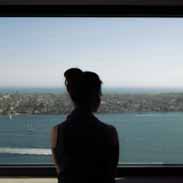AP Euro Ch 21 Test/Quiz – Flashcards
Unlock all answers in this set
Unlock answersquestion
France's representative at the Congress of Vienna was
answer
d. Talleyrand
question
Metternich's "principle of legitimacy" was another term for
answer
?????d. constitutional monarchy.
question
The Congress of Vienna
answer
b. created policies that would maintain the European balance of power
question
The foreign minister and diplomat who dominated the Congress of Vienna was
answer
a. Klemens von Metternich.
question
Klemens von Metternich
answer
e. believed European monarchs shared the common interest of stability.
question
The author of Reflections on the Revolution in France and the founder of modern philosophical conservatism was
answer
d. Edmund Burke
question
At its most elementary Burkean level, conservatism
answer
a. sought to preserve the achievements of previous generations by subordinating individual rights to communal welfare
question
The man long regarded as the George Washington of Latin America is
answer
b. Simón Bolívar.
question
The most important factor in preventing the European overthrow of the newly independent nations of Latin America was
answer
e. British naval power.
question
By 1824, which one of the following Latin American states had not become independent?
answer
??????e. Panama.
question
Which one of the following was the English political party in power until 1830, the party that represented tradition?
answer
?????a. Tories.
question
By 1815, following the Congress of Vienna, the Italian peninsula
answer
b. remained divided into several states subject to the domination of other European powers.
question
The growing forces of liberalism and nationalism in central Europe were exemplified by the
answer
d. Burschenschaften, the student societies of Germany
question
The Karlsbad Decrees of 1819 did all of the following except
answer
d. dissolved several smaller German states.
question
Following the death of Alexander I in 1825, Russian society under Nicholas I became
answer
e. became a police state, as the czar feared both internal and external revolutionary upheavals.
question
The argument that population must be held in check for any progress to take place was popularized by
answer
e. Thomas Malthus.
question
David Ricardo's iron law of wages stated that
answer
c. wages would stay low as workers bred more children.
question
The foremost social group embracing liberalism was made up by
answer
b. the industrial middle class.
question
J.S. Mill's On the Subjection of Women stated that
answer
b. men and women did not possess different natures
question
Central to the liberal ideology in the nineteenth century was
answer
c. an emphasis on individual freedom.
question
The growing movement of nationalism in nineteenthcentury Europe
answer
c. was radical since it encouraged people to shift their political loyalty away from existing states and rulers
question
Charles Fourier advocated a system of cooperative communities called
answer
d. phalansteries
question
Charles X was overthrown in the 1830 July Revolution because he
answer
??? b. supported the interests of the aristocrats and Church
question
King Louis-Philippe in France
answer
b. cooperated with François Guizot and the Party of Resistance against the Party of Movement.
question
The most successful nationalistic European revolution in 1830 was in
answer
e. Belgium.
question
The primary driving force in the revolutions of Belgium, Poland, and Italy in 1830 was
answer
a. nationalism
question
The Polish national uprising of 1830 was crushed by
answer
d. Russia.
question
Which of the following statements best applies to Thomas Macaulay's thoughts on reform in Britain?
answer
c. He supported reforms as a means of preventing more radical revolutionary movements
question
The Reform Bill of 1832 in Britain primarily benefited the
answer
e. upper middle-class.
question
The English Poor Law of 1834 was based on the theory that
answer
c. if the conditions of provision for state welfare were intentionally made miserable, then the poor would be encouraged to find profitable employment.
question
The revolution of 1848 in France ultimately resulted in
answer
d. a new French empire under Louis Napoleon
question
Louis Blanc's "national workshops" in France
answer
c. became little more than unemployment compensation units through public works projects
question
In 1848, the Frankfurt Assembly
answer
c. failed in its attempt to create a united Germany.
question
The Frankfurt Assembly of 1848-1849
answer
e. accomplished nothing at all.
question
Giuseppe Mazzini's nationalist organization, Young Italy,
answer
b. failed to achieve his goal of "resurgence" by 1849
question
Mazzini's risorgimento
answer
b. failed due to opposition of the French, the Austrians, and the pope.
question
Which one of the following brought an end to the Federalist party in the United States?
answer
c. the War of 1812, which Federalists had opposed.
question
Professional civilian police forces known as serjents first appeared in 1829 in
answer
e. France
question
London's police were called "bobbies" because
answer
c. the legislation to create them was introduced by Robert Peel
question
Regular police forces and prison reform were geared toward
answer
a. the creation of more disciplined and law-abiding societies
question
All of the following were characteristics of Romanticism except
answer
b. the rejection of the supernatural and unfamiliar
question
The literary model for early Romantics was
answer
d. The Sorrows of the Young Werther, by Goethe
question
The romantic movement can be viewed as a(n)
answer
a. reaction against the Enlightenment's preoccupation with reason.
question
The American romantic author of The Fall of the House of Usher was
answer
c. Edgar Allen Poe
question
The most important form of literary expression for the romantics was
answer
b. Poetry
question
Which of the following were major themes/subjects of Romantic artists?
answer
c. landscapes and depictions of nature
question
Romanticism in art and music was well characterized by
answer
b. Beethoven, whose compositions bridged the gap between Classicism and Romanticism
question
In architectural styles, the Romantics were particularly attracted to the
answer
a. Gothic.
question
The Romantic artist whose paintings were described as "airy visions, painted with tinted steam" was
answer
b. Turner.
question
Religion in the age of Romanticism experienced
answer
a. a Catholic revival especially in Germany



